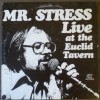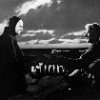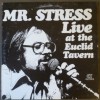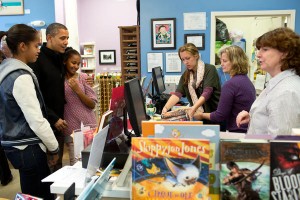How a Community Makes a Book
I first met writer and literary journalist Robert Gray when I was Editor-in-Chief of Carroll & Graf Publishers and he worked at the splendid Northshire Bookstore in Manchester Center, Vermont. I loved that his email address at the time incorporated the phrase “marbleman,” as a personal homage to Vermont’s marble quarrying. We both later moved on but kept in touch, especially after he became a regular contributor to the daily book world read Shelf Awareness, and I started curating and writing The Great Gray Bridge. Robert’s pieces for Shelf Awareness are published under the rubric, “Deeper Understanding.”
 Recently, I let Robert know about Rust Belt Chic: A Cleveland Anthology to which I’d contributed an essay, hoping the DIY energy that produced the book would appeal to him, and that he might want to cover it in his column. He took the opportunity to heart and today published a great piece, “Self-Pub, Sense of Place & Concentric Circles,” with passages like this:
Recently, I let Robert know about Rust Belt Chic: A Cleveland Anthology to which I’d contributed an essay, hoping the DIY energy that produced the book would appeal to him, and that he might want to cover it in his column. He took the opportunity to heart and today published a great piece, “Self-Pub, Sense of Place & Concentric Circles,” with passages like this:
“When you want to know about a place, ask the people who live there. When you want to read about a place, read the writers whose words reveal more than just the surface of a region’s past and present. What does that have to do with self-publishing? This: For a bookseller considering the possibility of stocking a self-published book, one reliable sign of a winner is a title with a tangible sense of place. Whether or not such a book eventually finds readers beyond the region, it must begin at the center–a pebble dropped in a local pond–before concentric retail sales circles can spread. In their introduction . . . editors Richey Piiparinen and Anne Trubek describe the project as “a community effort to tell the story of a city.” And that’s just what it is.”
Later, Robert generously mentions my essay, “Remembering Mr. Stress, Live at The Euclid Tavern,” linking to an expanded version of it on this blog. I invite you to read Robert’s entire piece at this Shelf Awareness link, and my piece if you haven’t yet. Robert’s past columns can also be found at his website, Fresh Eyes Now.
I should add that the Nook, Apple, and Kindle ebook editions of Rust Belt Chic are currently being sold in their respective digital stores for the terrific price of $2.99 (link for Nook store, ITunes store, and Kindle store). Finally, I’m also happy to report that the first Rust Belt Chic event in the NYC area is coming up, Thursday, January 3 in Brooklyn at Public Assembly. I’ll be there to read, as will other northern Ohio transplants in the NYC area. It would be great to see you there!












